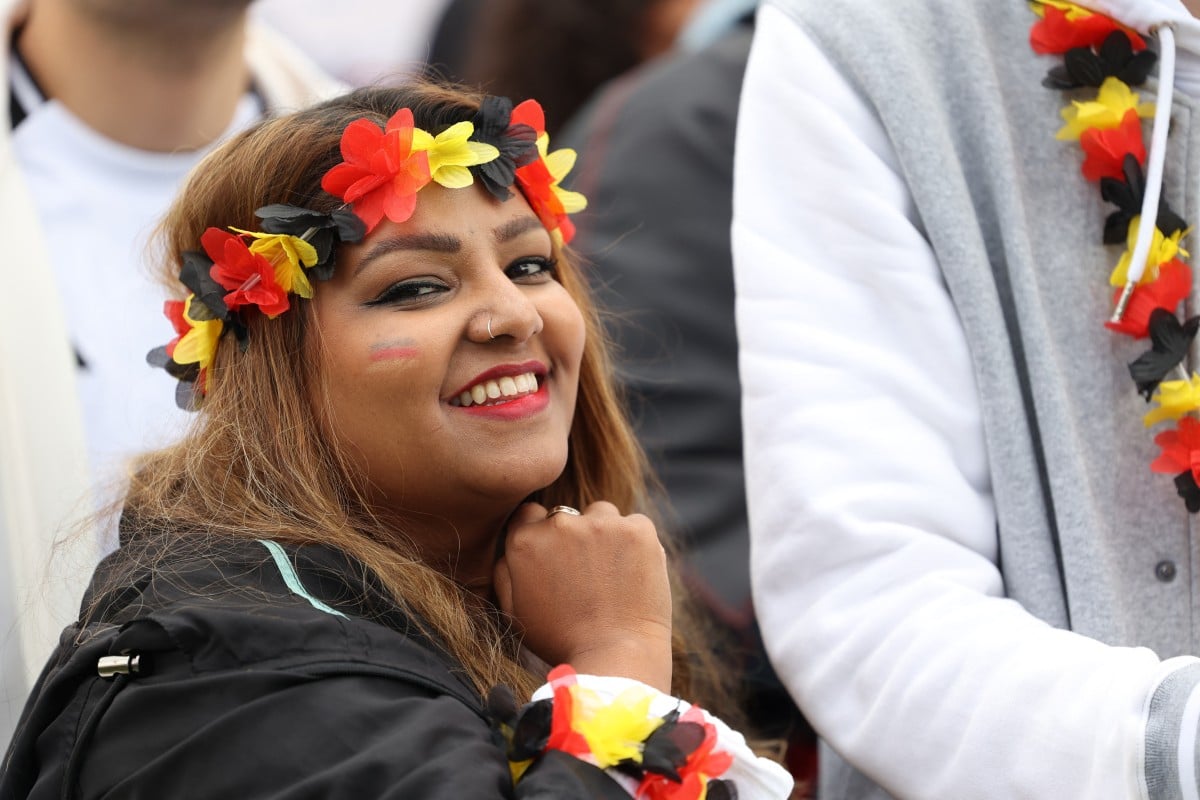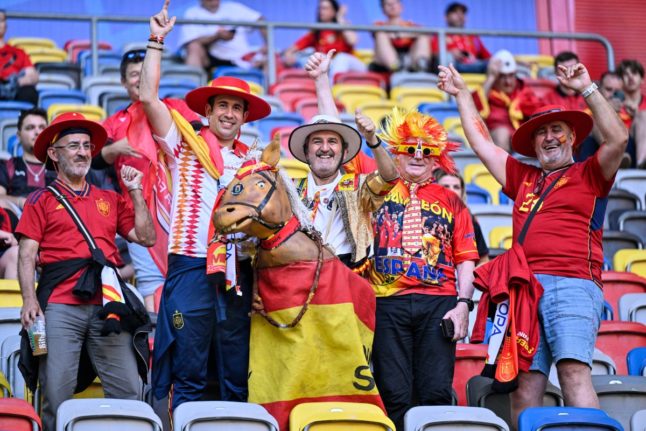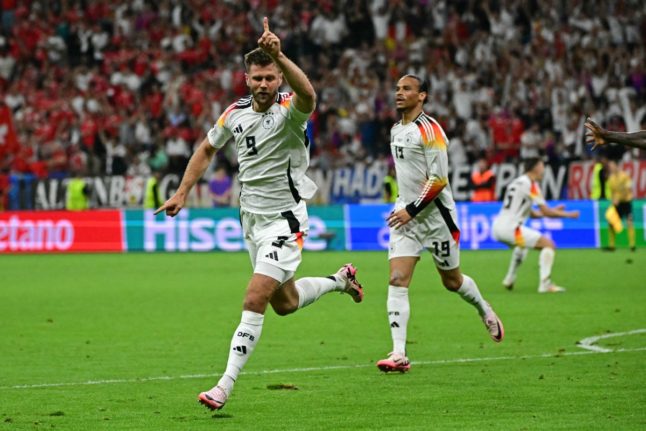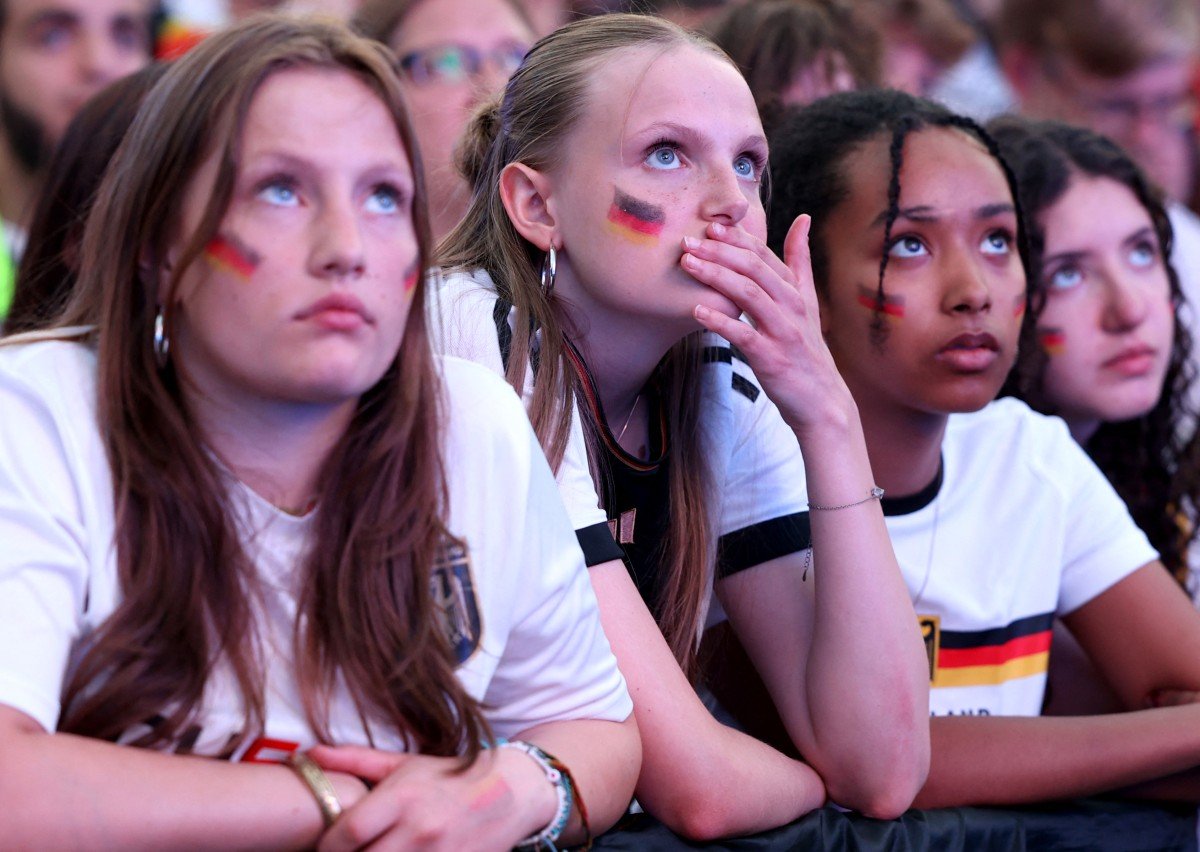The UEFA Euro 2024 group stage has come to a close. The ‘Round of 16’ is the next phase and there are a number of exciting matches on the horizon across Germany.
These are the 16 teams left in the tournament, the planned fixtures and which host city they are taking place in:
Switzerland vs Italy (Berlin, June 29th)
Germany vs Denmark (Dortmund, June 29th)
England vs Slovakia (Gelsenkirchen, June 30th)
Spain vs Georgia (Cologne, June 30th)
France vs Belgium (Düsseldorf, 1 July 1st)
Portugal vs Slovenia (Frankfurt, July 1st)
Romania vs Netherlands (Munich, July 2nd)
Austria vs Turkey (Leipzig, July 2nd)
How can I watch the games on TV in Germany?
First up, players have two well-earned rest days on June 27th and 28th. So if you’ve been glued to the tournament, this is your chance to catch up on some other activities.
The action starts again on Saturday, June 29th.
If you’re planning to stay at home, there are a few ways you can catch these games.
The tournament is being broadcast fully by Telekom Deutschland via its paid streaming provider Magenta TV. Broadcasters ARD, RTL Germany, and ZDF, which are free to air, are also showing a number of games.
Here’s a look at which channels are scheduled to show the matches (note that all games are also being shown by Magenta):
Saturday June 29th, 6 pm: Switzerland vs Italy – RTL
Saturday June 29th, 9 pm: Germany vs Denmark – ZDF
Sunday June 30th: 6 pm: England vs Slovakia – ZDF
Sunday June 30th, 9 pm: Spain vs Georgia – ARD
Monday July 1st, 6 pm: France vs Belgium – ZDF
Monday July 1st, 9 pm – Portugal vs Slovenia – ARD
Tuesday July 2nd, 6pm – Romania vs Netherlands – ARD
Tuesday July 2nd 9pm – Austria vs Turkey – Magenta only
READ ALSO: How to watch the Euro 2024 tournament in Germany
Where else can I watch the games?
If you don’t have access to all the games at home or you want to soak up the atmosphere outside, lots of venues are screening the matches. Locally, you should check out pubs, restaurants and late-night shops in your area.
Another great way of enjoying the action is heading to fan zones. All of the 10 cities hosting matches have their own fan areas set up that are screening all the action. You can also grab a beer and food to make the most of the experience.

READ ALSO: Where are the fan zones for Euro 2024 in Germany?
If you have a ticket, you will of course be heading to the matches. (And if you haven’t got a ticket, check the UEFA site to see what is available).
If you are heading to a game, you should plan the journey carefully.
READ ALSO: Can Germany’s hosting of Euro 2024 be judged a success so far?
One benefit for Euro ticket holders is that they have access to a 36-hour travel pass (36-Stunden-Fahrkarte).
Every match ticket holder is entitled to a 36-hour travel card to use on local public transport in and around the 10 host cities at no extra cost from 6 am on the relevant match day until 6 pm the following day.
READ ALSO:
- The 10 German stadiums hosting Euro 2024 and how to get to them
- Six things to know about visiting Germany during Euro 2024
This week parts of Germany are expected to see temperatures around 30C as well as some storms so if you’re out and about, make sure to pack sunscreen, a hat and a waterproof. And stay hydrated with lots of water!




 Please whitelist us to continue reading.
Please whitelist us to continue reading.
Member comments